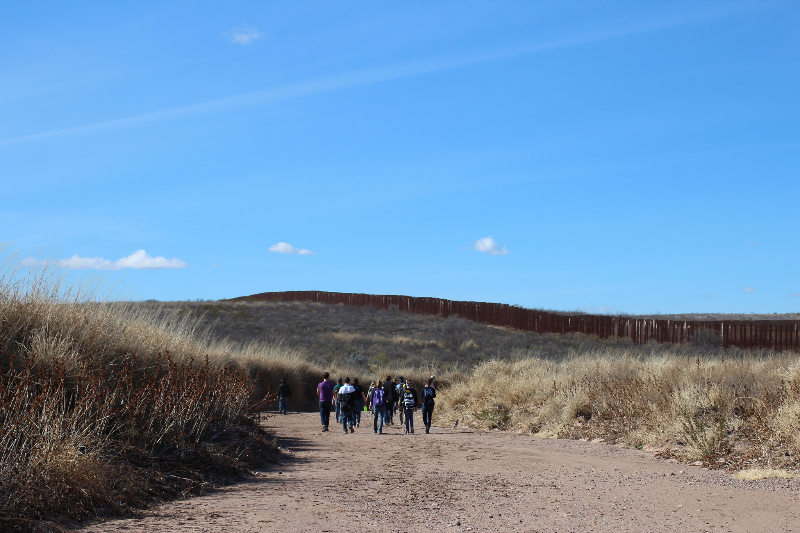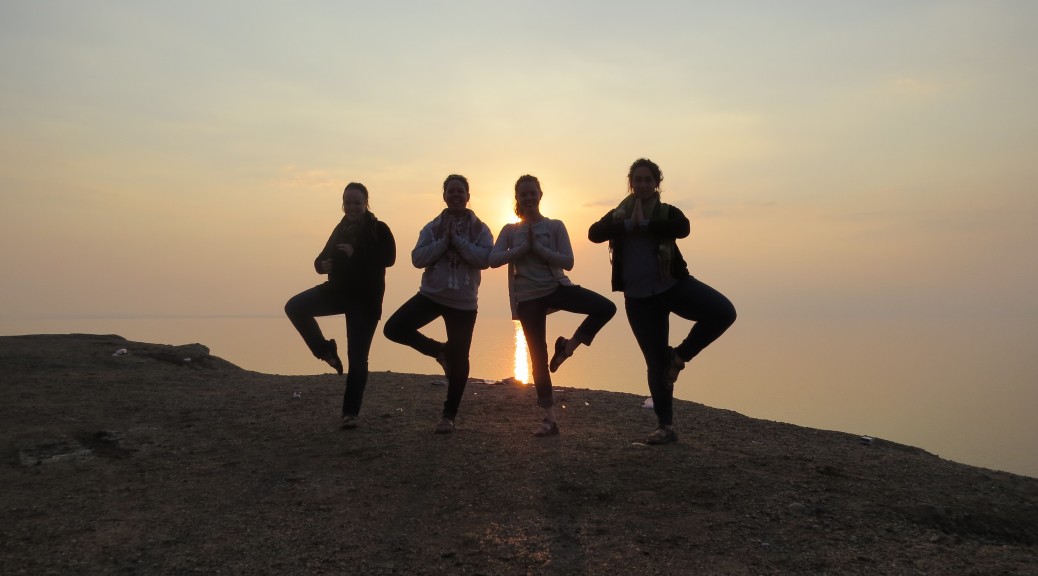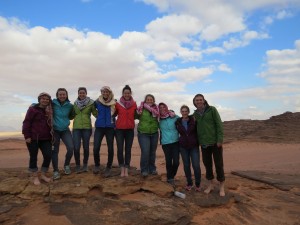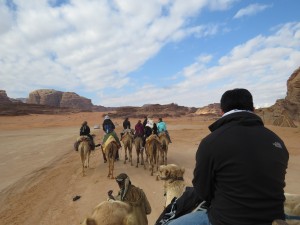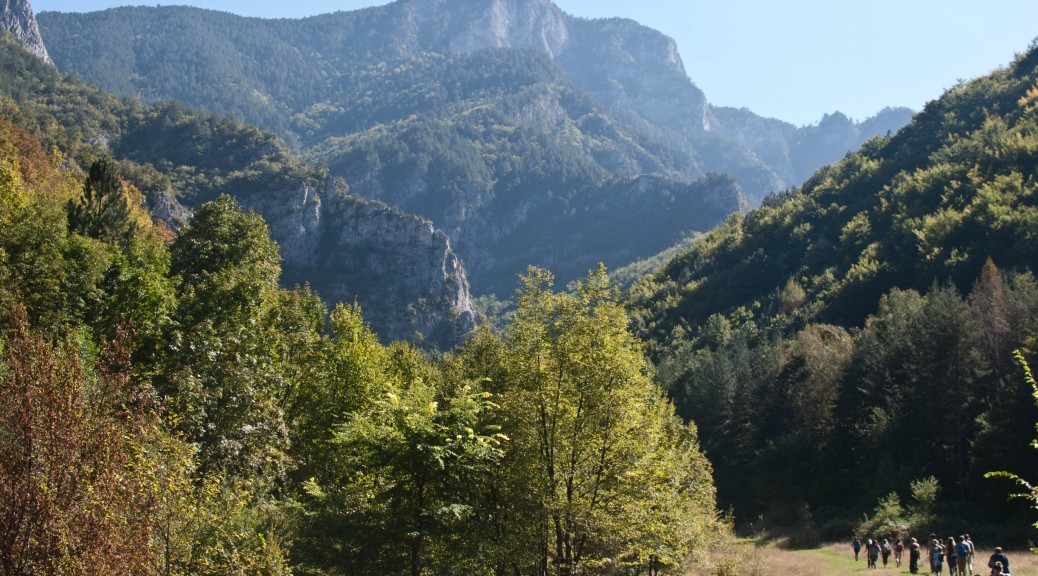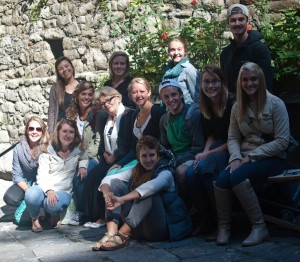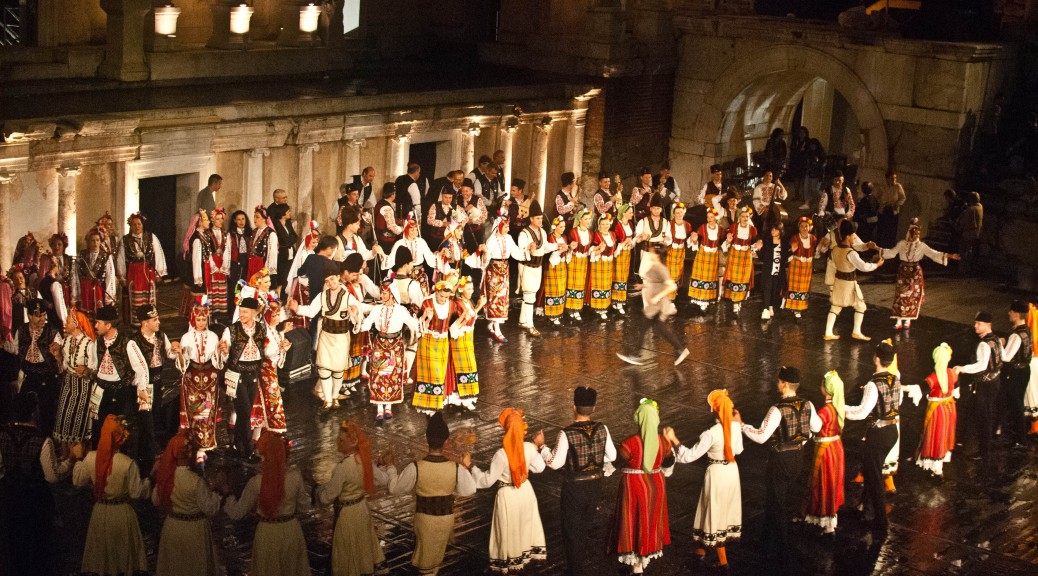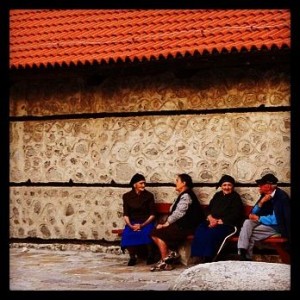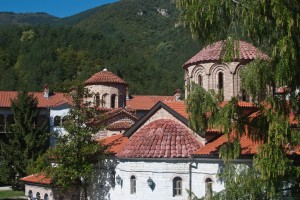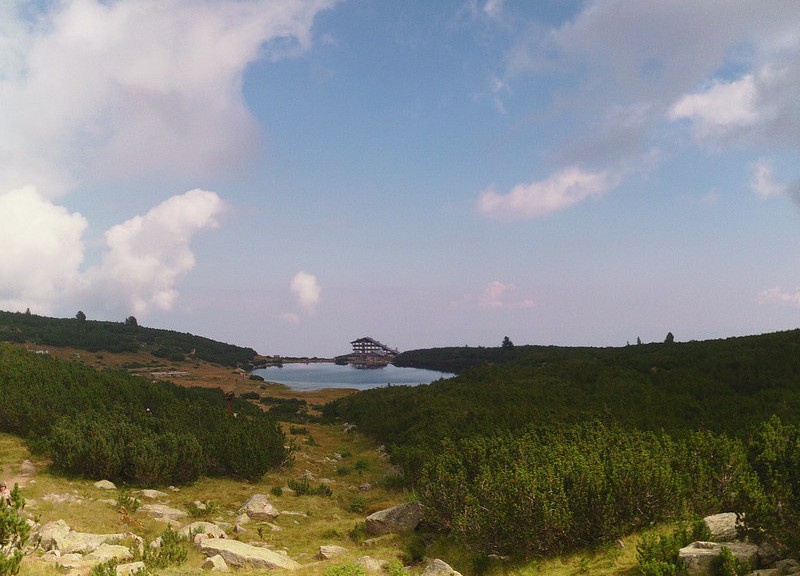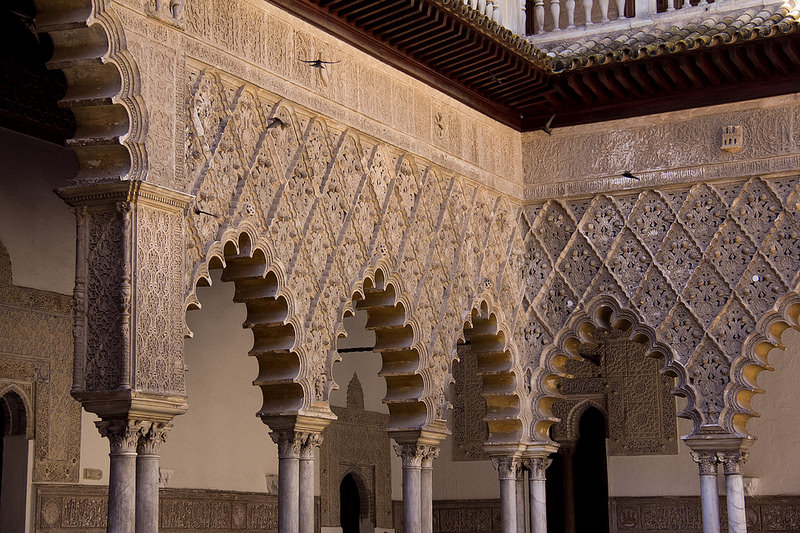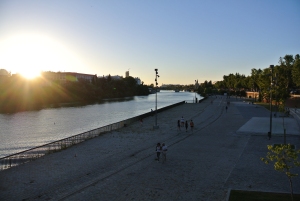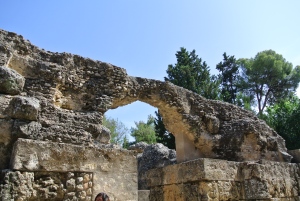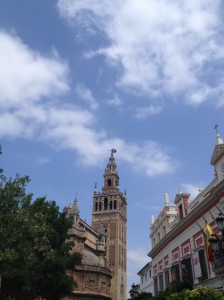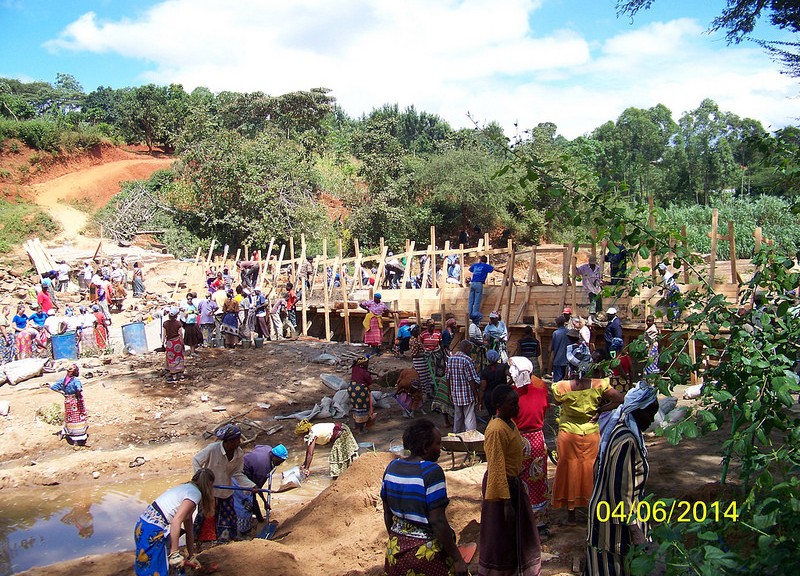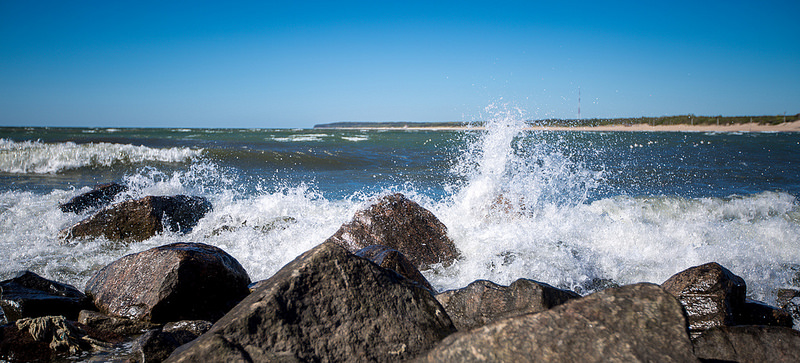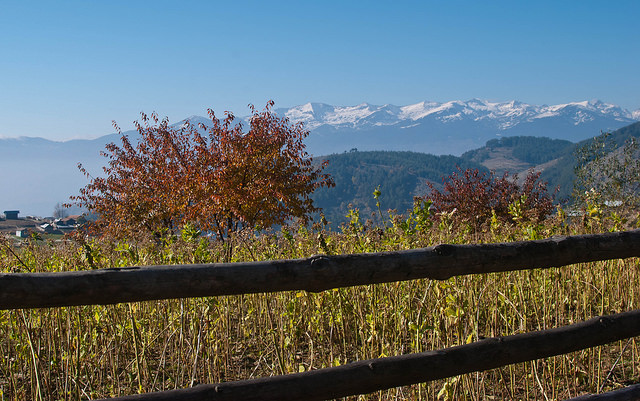
13 November 2014
She stomped onto the bus, long, loose red curls swinging from side to side, framing her weathered face. With a gruff expression, she brought us to attention with a shout of “hello.” She leaned against the side of a seat, resting momentarily. After gathering herself, she stood up straighter, emboldened, and shouted forth what information she deemed critical for us to know: “let’s get one thing straight: I am not a missionary, so don’t call me that.”
This proclamation was bold, and instantaneously, I loved this woman.
Despite her disassociation with the term “missionary” the work Sylvia devotes herself to is bringing forward the kingdom of God. She moved to Bulgaria and has loved and been loved by the people for the duration of her time here. She is an anomaly: after her organization failed to provide her adequate funds, the Bulgarians supplemented her salary and supported her. This is completely unheard of and testifies to her work ethic and cultural sensitivity. Currently, she is working at one of the few Syrian refugee camps. For two days, she briefly allowed us into her world.
When we first entered the camp, everyone was forced to acknowledge a spirit of despair that permeated our beings. Our surroundings reinforced what we felt intuitively: the sky was dark, full of foreboding clouds, our feet sank into the soggy ground, and the land was stacked with rows and rows of temporary housing. The air was slightly damp and I noticed how quickly my fingers and toes seemed to turn to ice.
We stood at the gate, freezing, gaping at our surroundings for what felt like an eternity. Finally, our group was herded into another building to meet with the camp director. The residents at the camp had been informed that a group of Americans were coming and had formed a large group, waiting to see us. We marched through the clump of people, holding one another close. I looked up occasionally, stealing glances that I had been warned against. My eyes met blank faces of young men, older men, children, mothers. I remember the collective large, dark eyes. They did not look at me expectantly nor defensively, I was merely being observed and I have never felt more vulnerable.
I found myself ushered into a classroom reserved for the camp administration. The room had buzzing fluorescent lights, gleaming desks, and our muddy shoes squeaked as we trod over shining linoleum tiles. Enticed by the prospect of a view, I wandered toward the window. Looking out, I saw the large group of residents slowly making their way back into the grid of temporary housing, smoke billowing up from trash fires; I saw the wall that separated the camp from the city. On the horizon, I could see the outlines of communist block buildings. All I could see was oppression– current and historical traumas. And none of it felt real.
The week before, our group was exploring the city of Veliknovo, Turnovo. While in Turnovo, we had the opportunity to meet with several different men who shared ideas and perspective with us at the university. I felt particularly impacted by Marian’s discussion. He adamantly insisted that humanity is at its best when it is engaging in relationship.
As Westerners, we can find ourselves wrapped up in our individuality – thinking only of ourselves in a cyclic and destructive way. After establishing the prominence of this tendency, Marian asked us, in the most gentle and unassuming way, “what is the cost to love?” Our simple answer was a whispered response of, “nothing.” Marian continued, and telling us of the beauty that abounds when we break out of these cyclic mentalities. The most basic reward of relationship is to have the eyes of another, acting as mirrors for us to see ourselves. As we engage further, synergy of people and energy is produced. We learn how to give and be given to. The synergy molds us, changing us for the better.
I could not escape Marian’s words that day in the camp. I could not escape the vacant stares. I was nervous to engage with the residents.
Our group was organized into two before we left the classroom. A handful of us assembled groups of shoes to be dispersed to family groups. The rest of us spent the day slushing through mud, dragging metal bed frames from one building to the next, then assembling the beds.
Initially, we were watched as we carried the bed frames from building to building. The residents were curious about us, but withdrawn. An hour into the process, several young boys had enough of simply observing us. They joined in, happily running through the mud, meeting us as we emerged out of one building, taking the bed frames from our loaded arms, carrying the weight themselves. The boys were ecstatic — invigorated by the work and the opportunity to simply do. Each time they met me with expectant, outreached arms, eager to shoulder the burden of the heavy metal frames.
The next day, our group organized games and activities for the children in the camp. We found ourselves in a similar classroom as the day before, one that felt completely surreal and entirely unused. We threw down crayons, markers, face paint, balloons, and candies onto the shiny, unblemished desks. Children and mothers flooded in, and in moments, the room was transformed. The room, once stale, now housed squealing children, proud mothers, and all of the resultant joyful noise. I thought of the synergy that Marian spoke so passionately of — here, I could see it blooming.
For the hour, I painted faces of the residents. I was given the opportunity to give all of my attention to each child in the seat right in front of me. I tried to give safety and affirmation to each person as I traced simple hearts onto pure cheeks. The smiles I received in return made me swell with affection. I will cherish those exchanges for the rest of my life.
Throughout, I considered the paradigm shift that I experienced. I moved from fearfully stealing glances and seeing vacant stares to learning how to maintain meaningful eye contact. Before establishing relationship with the residents, I hated my reflection in their eyes. In that mirror, I saw my privilege and felt nothing but guilt. As the relationship evolved, so did the reflection. I began to appreciate the ways that I could give and be given to. I hope that my eyes mirrored back the beauty that I saw, the resilience, the hope.
I will also never forget Sylvia’s initial greeting: she does not proclaim to be the sole giver. She engages in relationship. She stands beside the hurting. She makes room for synergy by not claiming superiority. She is not found in vacant classrooms — she will be found trekking through the mud, delivering shoes, exchanging smiles, giving meaningful squeezes. Within Sylvia’s synergistic relationships, she is constantly moving, constantly changing, constantly learning. She is constantly giving, constantly engaging in relationship, constantly learning how to love more fully.
-Hanna Heishman
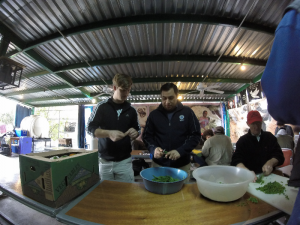 Our group arrived in Tucson, Arizona on January 8th shortly after midnight, and we spent several days in a hotel there while beginning our study of immigration issues at the US/Mexico border. Our first activity on the morning of the 8th was crossing the border to visit El Comedor (a soup kitchen just across the border in Nogales, for newly deported migrants). We also heard migration stories from several women being protected in a woman’s shelter there in Nogales. For being our first day, it was flooded with a lot of emotional heaviness.
Our group arrived in Tucson, Arizona on January 8th shortly after midnight, and we spent several days in a hotel there while beginning our study of immigration issues at the US/Mexico border. Our first activity on the morning of the 8th was crossing the border to visit El Comedor (a soup kitchen just across the border in Nogales, for newly deported migrants). We also heard migration stories from several women being protected in a woman’s shelter there in Nogales. For being our first day, it was flooded with a lot of emotional heaviness.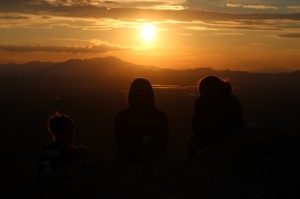 (where the biggest challenge was avoiding the Jumping Cholla cactus), and some much-needed relaxation time at the hotel. Sunday morning after church and lunch with members of the humanitarian project “No More Deaths”, we set out for Agua Prieta, where we spent a week in a community center just a short distance from the wall, which we visited several times. We experienced shopping on a maquila (factory) worker’s salary and cooking dinner and breakfast together, visited a drug rehabilitation community, heard from several passionate speakers on border issues, and participated in a vigil for those who have died crossing the desert in Cochise County. We visited a border patrol facility at the end of the week and heard their perspective as well. Our time at the border included a lot of U-turns, bathroom stops, and Spanglish as our group starts to get to know each other and figure out the sometimes chaotic schedule of each day together.
(where the biggest challenge was avoiding the Jumping Cholla cactus), and some much-needed relaxation time at the hotel. Sunday morning after church and lunch with members of the humanitarian project “No More Deaths”, we set out for Agua Prieta, where we spent a week in a community center just a short distance from the wall, which we visited several times. We experienced shopping on a maquila (factory) worker’s salary and cooking dinner and breakfast together, visited a drug rehabilitation community, heard from several passionate speakers on border issues, and participated in a vigil for those who have died crossing the desert in Cochise County. We visited a border patrol facility at the end of the week and heard their perspective as well. Our time at the border included a lot of U-turns, bathroom stops, and Spanglish as our group starts to get to know each other and figure out the sometimes chaotic schedule of each day together.